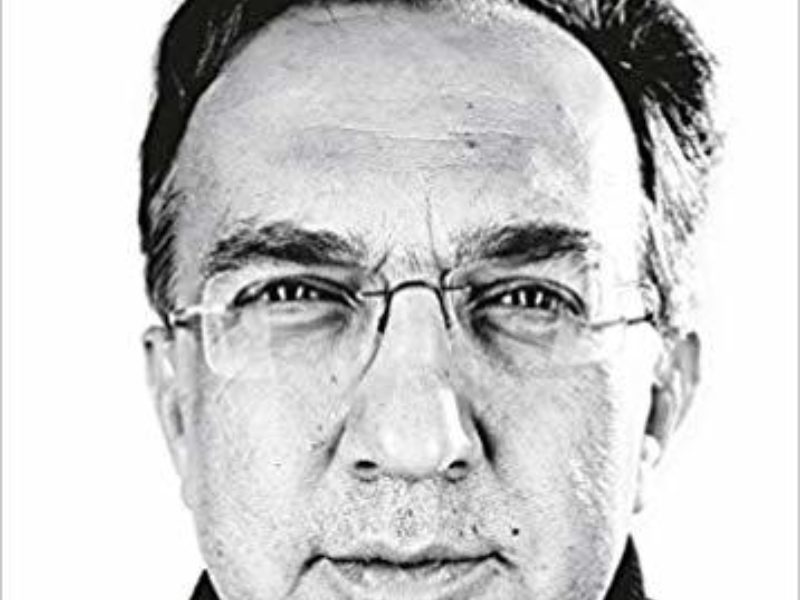"Sergio Marchionne" by Tommaso Ebhardt
 Tommaso Ebhardt's book
Tommaso Ebhardt's book This summer I read my first biography.
Not my own biography 😊, rather the biography of a famous person: Sergio Marchionne.
I normally read novels in my spare time, but in this case – following a recommendation by my husband - I brought this book with me on holiday and read it: it’s as readable as a detective novel (and I mean that in the best possible way).
Sergio Marchionne’s biography
This book describes the personal experience of the author– Tommaso Ebhardt, an editor at the Bloomberg Italia newsroom – who followed Sergio Marchionne (he calls him SM in the book) closely for 10 years and decided to tell the story of SM in a book following on from a suggestion from SM himself - who said to the author as a passing remark one evening - after they had had dinner at his house in Michigan – “ with everything I’ve told you, you’ve got enough material to write a book” (I quote from memory).
I must confess I am “biased” towards Marchionne: Sergio Marchionne saved FIAT and was a great manager, one of the very few, you can learn a lot from. I read about his story over the last 10 years with more than an open mind, as my opinion about him was already positive.
What I learned from this book
There are two sides to what I learned:
- One about the manager
- One about the human being.
Sergio the worker
It’s certainly not for me to judge, but I can express my opinion.
And, in my opinion, SM was a great manager because:
- he was good with numbers and used numbers to develop his strategies
- he examined and valued facts
- he knew people, even the ones at the bottom of the organisational ranks
- he worked a lot - on his own and with his team
- he led by example
- he worked for the shareholders
- he was educated and continue to want to learn about all sorts of things
- he had a strong personality which meant he could impose his leadership: you could see that in his jumpers and from his takeover of Chrysler.
Sergio the human being
As a human being, there is one doubt that I have been racking my brain over. Sergio Marchionne worked … all the time, and was always thinking about the company (or rather the companies where he had a senior role). He was always busy (Saturdays, Sundays and evenings) and would neglect his family. In times like this when people are trying to prioritise the time they spend and the relationship with their loved ones, as well as their feelings and their family, (or at least, so they claim, during conferences) Marchionne might not be the best example.
The reason for this might be that Sergio considered Fiat to be his family and thought about the huge responsibility he had towards the 300,000 employees he managed, so he gave them everything.
He wasn’t driven by money or personal glory, he was motivated by the satisfaction of succeeding in making the things he was assigned work well: in many occasions in the book Marchionne says about himself “I am a fixer”.
As an engineer I am certainly fascinated by this person and would like to learn more about him as a manager, including through other people who knew him, although I believe that Tommaso Ebhardt’s work is truly outstanding: to read, to give someone as a gift, to study, to be used on MBA courses...
...what about Goodgoing! ?
It’s a book I recommend to managers who turn to GoodGoing! who obviously appreciate the importance of working on themselves and constantly improve: reading a book like this and reflecting on SM’s management style will inevitably lead to us making some personal adjustments - at least I hope so - because it encourages people to take control of their lives and do things according to their own values.
I don’t believe in the rule that the younger someone is the better they are. Quite the opposite: People should get the recognition they deserve, whether there are thirty or sixty years old.
– Sergio Marchionne
